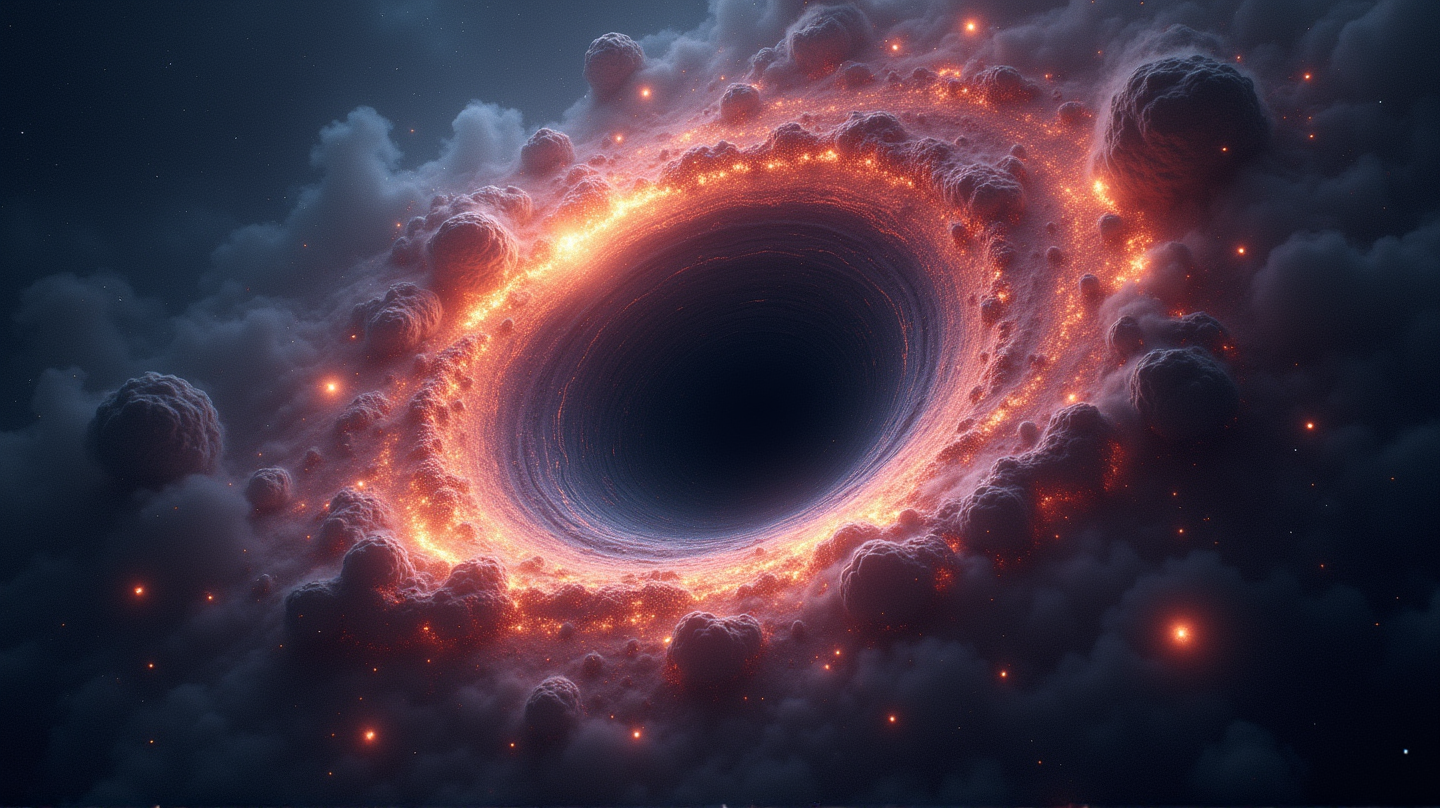Did Our Universe 'Bounce' from a Black Hole? A Groundbreaking Theory Emerges
A radical hypothesis proposes the universe originated from a black hole in a parent cosmos, challenging the Big Bang Theory.

Could our universe have ‘bounced’ its way into existence from a black hole in another parent universe? This captivating theory, from physicists at the University of Portsmouth, is reshaping our understanding of cosmic origins.
Challenging the Big Bang
For decades, the Big Bang Theory has reigned supreme in cosmology. Its robust explanations have been backed by decades of research and observations, like the cosmic microwave background. However, the “Black Hole Universe” hypothesis provocatively suggests that instead of being a standalone birth event, our universe could be the aftermath of a black hole from a prior cosmos. This theory introduces an entirely different perspective by merging gravity with quantum mechanics to challenge the existing paradigm.
A Journey Through Time
The historical quest to understand where we come from has driven humanity to explore myths, develop technologies, and question the known universe. Couched in deep philosophical and religious roots, this quest has now taken a scientific turn. From the accidental discoveries of the past century to modern-day sophisticated instruments, our curiosity drives us forward.
The “Black Hole Universe” Vision
Enrique Gaztanaga, leading the study, posits that when an overdense region collapses under gravity, it might not form a singularity as expected. Rather, it might “bounce” into a new expansion phase, birthing a universe. “The Big Bang model begins with a point of infinite density where the laws of physics break down,” Gaztanaga explains, providing the impetus for their theory’s development.
Possibilities and Predictions
What makes the “Black Hole Universe” hypothesis compelling is its testable nature within the framework of general relativity. The team argues that rather than a cosmic dead-end, black holes might be gateways to other universes, creating a cycle driven by cosmic laws we’re just beginning to comprehend.
The Scientific Method at Work
As Gaztanaga and his team delve deeper into this hypothesis, their work exemplifies the essence of the scientific method—questioning, hypothesizing, and testing our understanding of the universe. Whether the ARRAKIHS mission reaffirms the Big Bang or suggests the parent-black-hole concept, this dialogue furthers our essential human quest for knowledge.
According to Popular Mechanics, such theories push the boundaries and may eventually unlock mysteries that have puzzled us for eons. As we continue to gaze into the skies, seeking answers, it’s these very questions that propel humanity toward the next frontier.

